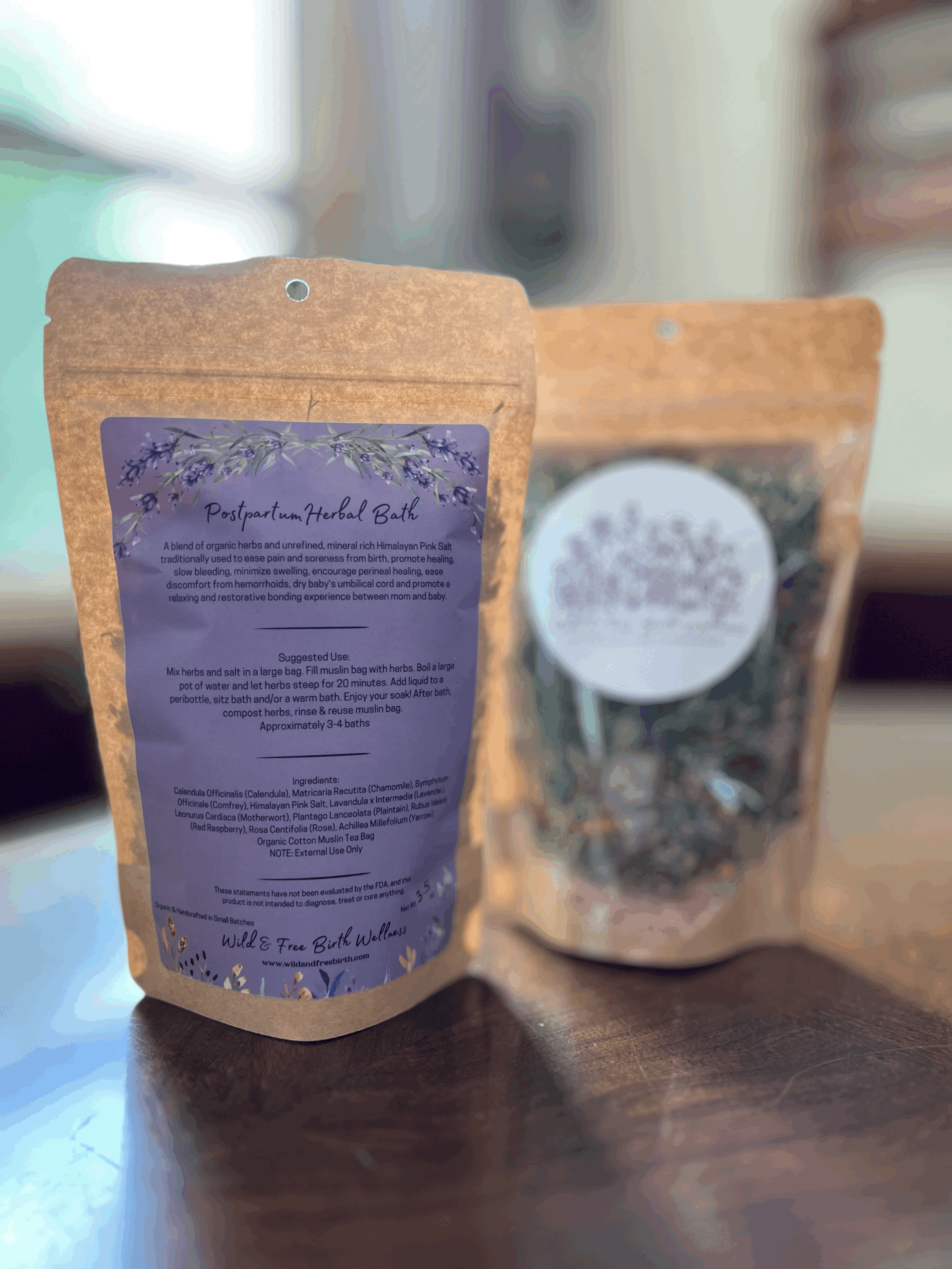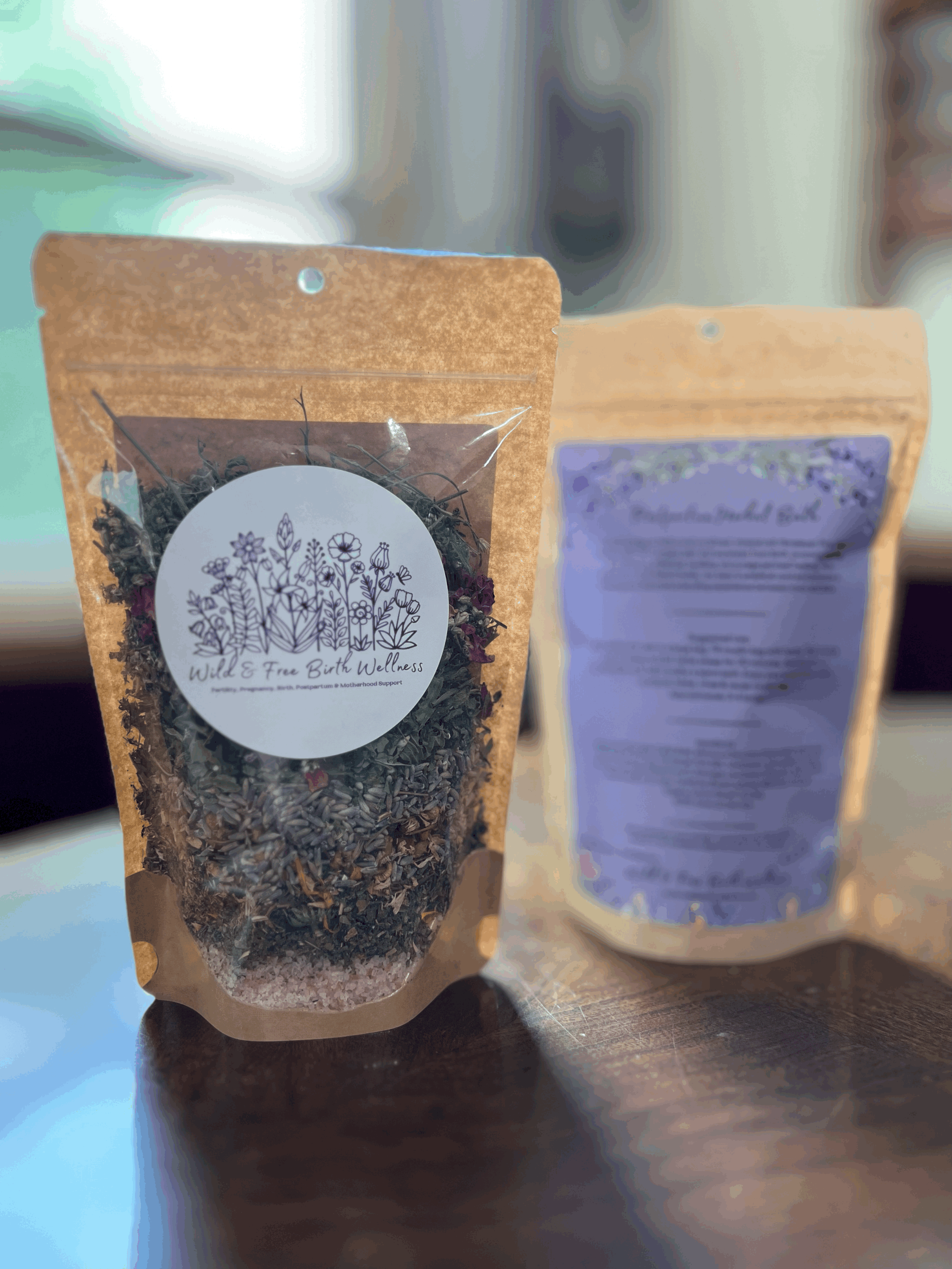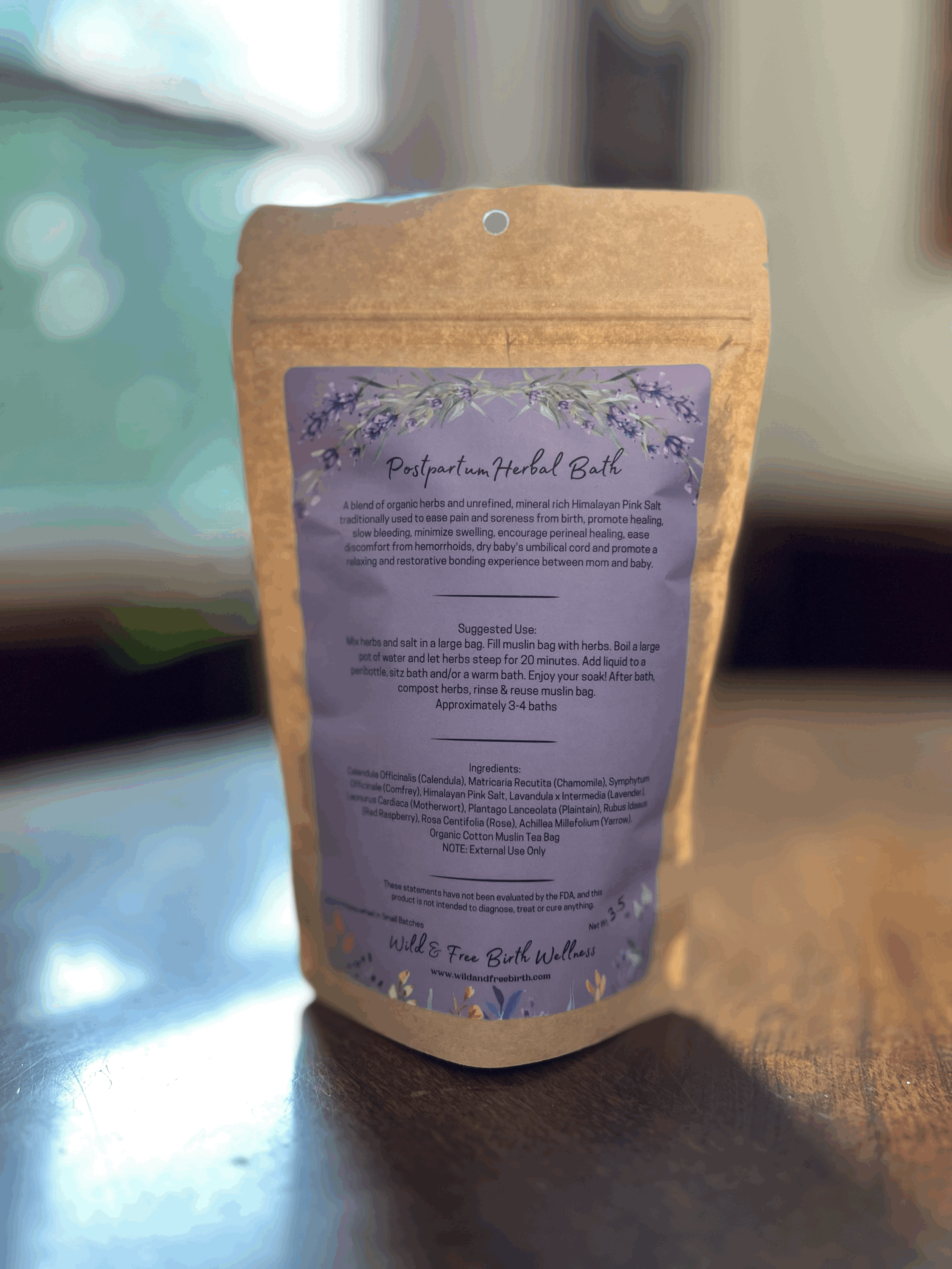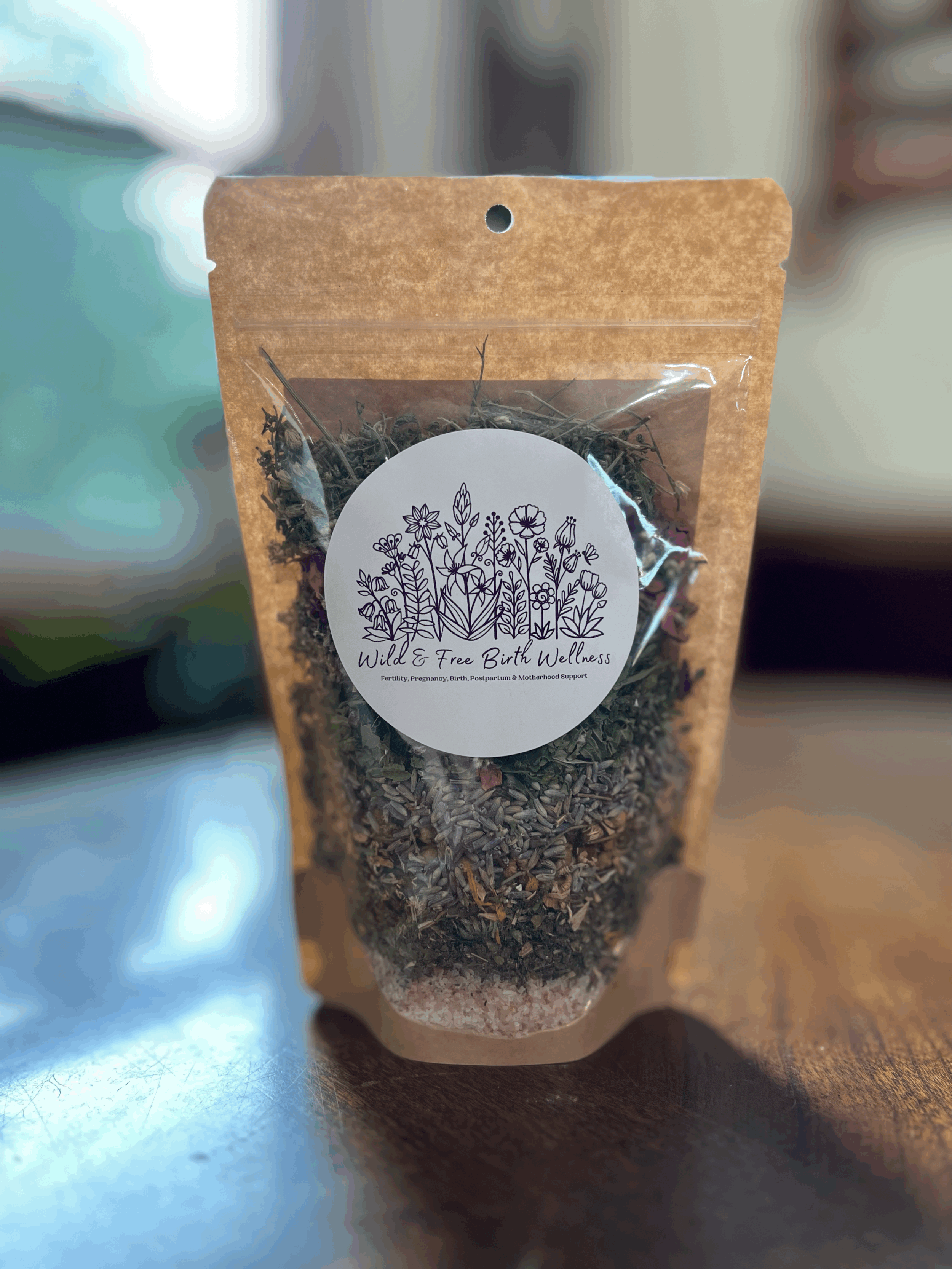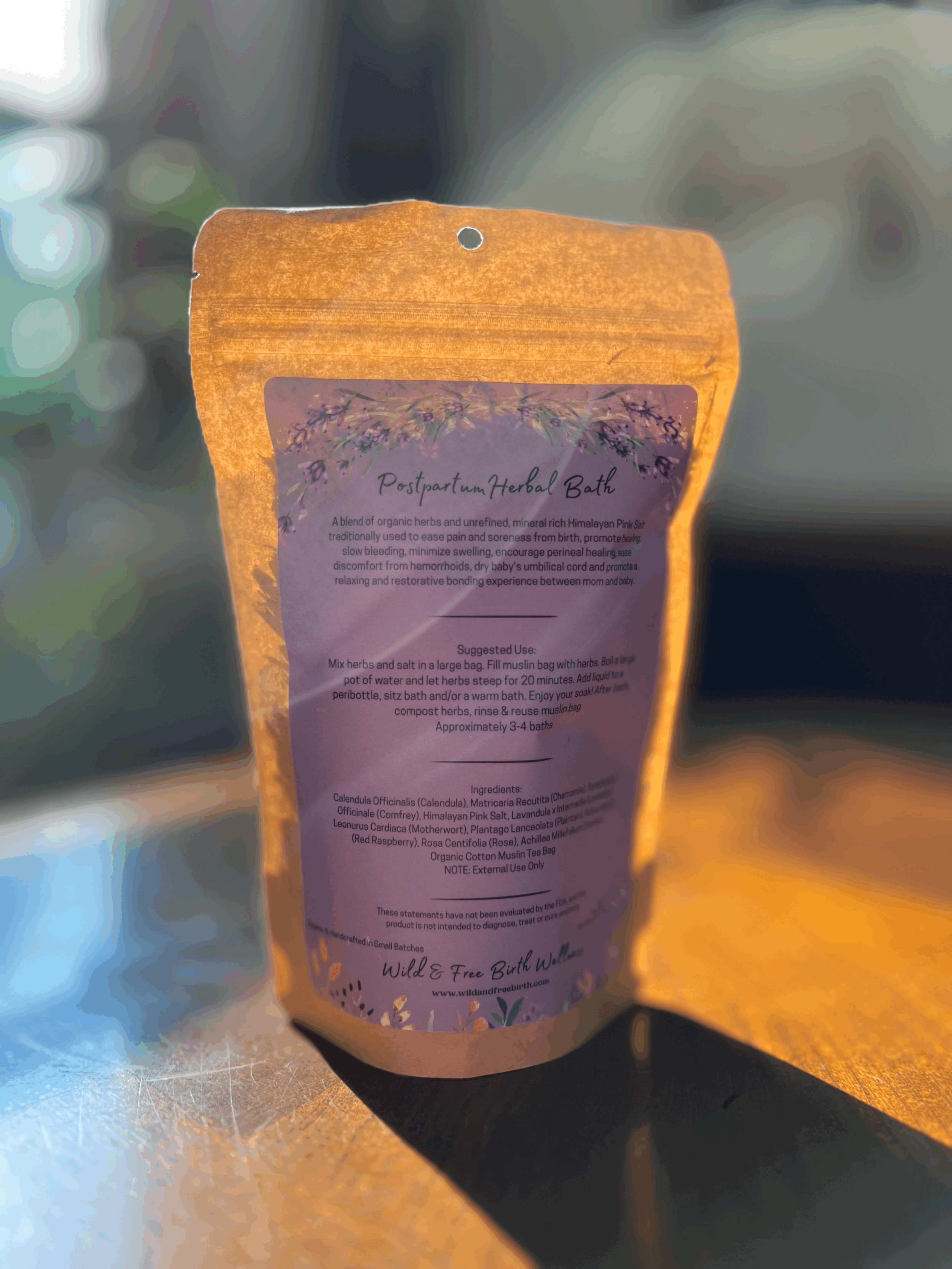A blend of organic herbs and mineral-rich Himalayan Pink Salt, traditionally used to alleviate pain and soreness post-birth, supports healing, reduces bleeding, minimizes swelling, aids in perineal recovery, eases hemorrhoid discomfort, and fosters a soothing bonding experience between mother and baby.
Various herbs are specifically chosen to soothe tender perineal tissue, heal tears and episiotomies (yes, even if stitches are involved!), reduce inflammation, and alleviate hemorrhoids following vaginal birth. (Please note: immersion baths are not suitable after a cesarean, but foot soaks with herbs like lavender blossoms and rose petals offer a delightful alternative for relaxation and self-care.)
Preparing the bath is akin to brewing a large pot of tea, and the infused liquid can also be used for compresses and peri-rinses. The herbal bath can typically be taken within an hour after a vaginal birth, provided the mother is healthy and free of infection. For optimal healing, a fresh herbal bath can be enjoyed once or twice daily over three to five days postpartum. Baby can join in the bath, benefiting from its healing properties for the umbilical cord as well.
To read even more about the benefits of Postpartum Herbal Baths, visit the blog post HERE.
Herbal Compresses and Peri-Rinses:
For herbal compresses: Simply soak a washcloth in the herbal tea and apply it warm or cold to the perineum as needed to reduce tenderness and swelling.
For peri-rinses: Obtain a peri bottle (a plastic squeeze bottle) from any pharmacy, and fill it with the strained herbal tea of your choice. Squeeze warm or at room temperature over your perineal area while urinating to significantly reduce inflammation and stinging.
The Sitz Bath:
If you prefer not to fully immerse yourself or lack a bathtub at home, consider using a sitz bath. A sitz bath fits snugly onto your toilet seat, allowing for a soothing soak of the perineal area after a vaginal birth without the need to immerse in a tub. Sitz bath basins are affordable and can be found at many pharmacies, Target, and Walmart.
**These statements have not been evaluated by the FDA, and this product is not intended to diagnose, treat or cure anything.**
Herbs Used:
Calendula Officinalis (Calendula), Matricaria Recutita (Chamomile), Symphytum Officinale (Comfrey), Himalayan Pink Salt, Lavandula x Intermedia (Lavender), Leonurus Cardiaca (Motherwort), Plantago Lanceolata (Plaintain), Rubus Idaeus (Red Raspberry), Rosa Centifolia (Rose), Achillea Millefolium (Yarrow).
Organic Cotton Muslin Tea Bag
NOTE: External Use Only
Suggested Use:
Combine herbs and salt in a large muslin bag. Bring a pot of water to a boil, then steep the herbs in the water for 20 minutes. Transfer the herbal infusion into a peri bottle, sitz bath basin, or a warm bath. Relax and enjoy your soak! Afterward, compost the used herbs, rinse, and reuse the muslin bag. Alternatively, store the herbs in a jar in the fridge for future baths.
This recipe yields approximately enough for 2 baths.

